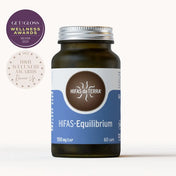Scientists from the United Kingdom managed to decipher the functioning of a promising drug against cancer initially discovered in a kind of wild fungus.
The team of the University of Nottingham, in the center of England, argues that its research could help improve the efficacy of the drug and make it more useful in the treatment of a wide range of types of cancer.
The cordepine, a medication commonly used in China, was originally extracted from an unusual type of parasitic fungus that grows in the caterpillars. The study is about to be published in the scientific journal Journal of Biological Chemistry.
The fungus of the Cordyceps species has been analyzed by medical researchers for decades. The first study on the cordepine dates back to 1950.
Initial obstacles
However, although the drug showed being promising, it quickly degraded in the body. And to combat this effect, it was administered along with a second drug that - in turn - can cause side effects that limit its potential use.
"Our finding could lay the foundations for the design of new drugs against cancer that act with the same principle," Dr. Cornelia de Moor, University of Nottingham.
Therefore, scientists turned their interest in other potentially effective drugs, so the mechanism of action of the cordepine in the human body continued to be a question.
"Our discovery will open the possibility of investigating the different types of cancer that could be treated with cordedepine," said Dr. Cornelia de Moor, head of the investigation.
"With this it will be possible to predict what types of cancer could be sensitive and with which other drugs could be combined the treatment to make it more effective," he added.
"In addition, our finding could lay the foundations for the design of new drugs against cancer that act with the same principle."
Effectiveness
The researchers also developed a method to analyze how effective a drug is in new preparations and in combinations with others, which could solve the problem of degradation more satisfactorily.
The University of Nottingham team observed two effects of the cordedepine on the cells. In a low dose, substance inhibits uncontrolled growth and division of cancer cells; In high doses, it prevents cells from adhering with each other, which also avoids their development.
Both effects probably share the same underlying mechanism: that the cordedepine interferes with how cells produce proteins.
A method was developed to determine the effectiveness of a drug in new preparations. In low doses, the drug hinders the production of RNAM (messenger RNA), the molecule that instructions on how to synthesize proteins. In high doses, it has a direct impact on protein production.
Professor Janet Allen is a research director of Biotechnology and Biological Sciences Research Council, the British institution that financed the study. "This project shows that we can always ask us questions about the fundamental biology of something, in order to refine the solution or solve questions so far without answers," he said.
"The knowledge generated in this research explains the mechanisms of action of the drug and could have an impact on one of the most important health challenges," he concluded.
The work was disseminated days after researchers from the Wellcomome Trust Sanger Institute of Cambridge (United Kingdom), claimed to have decoded the complete genome of two of the most common and lethal cancers - the skin and lung -, a step that - they affirm - could revolutionize the treatment of this disease.
According to Michelle Roberts, a correspondent for scientific issues of the BBC, the researchers affirm that this will not only allow a blood analysis to be carried out to detect tumors, but will also help develop new medicine.
Original news: Wild fungus against cancer.
















